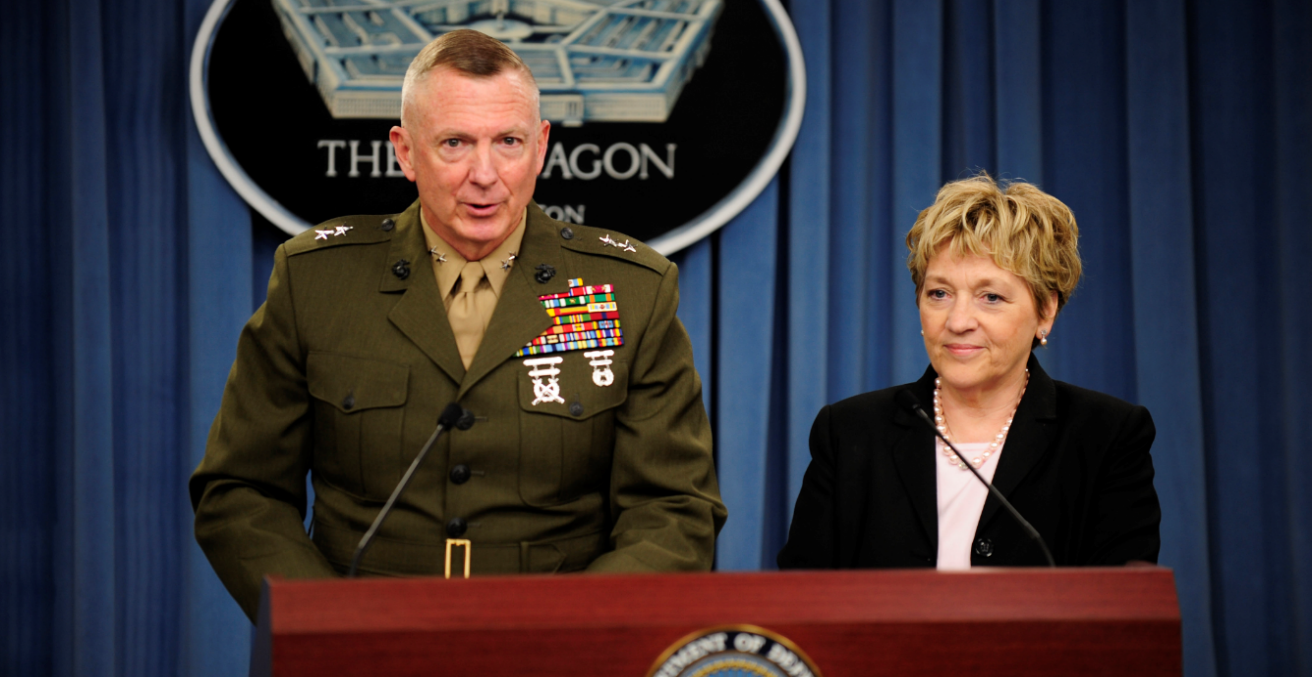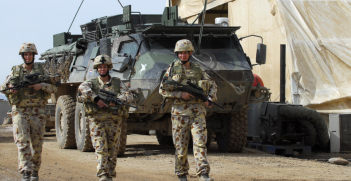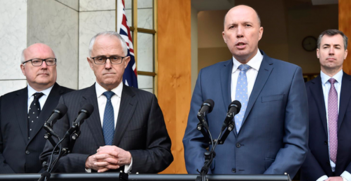Military Officers Need to Be Politically Savvy

Military officers must understand the nature of politics within society and be competent in political skills to accomplish organisational goals within the defence establishment.
Much of the discussion about civil-military relations in democratic societies focuses on the proper behaviour of military officers in support of elected or politically-appointed civilian officials.
The development of senior uniformed leaders who can effectively develop, employ and sustain forces to secure national interest continues to be of paramount importance. Such leaders at the highest levels necessarily exert power and influence in the conduct of their martial duties inside of defence organisations, as well as externally as members of the military profession.
Civil-military relations in democratic societies
An important relationship between military officers and elected or politically-appointed civilian officials occurs at the interface of military strategy and plans—especially for campaigns and theatre security cooperation—with national security and defence policy.
Civilian officials seek military advice from senior, uniformed officers during the development, implementation and evaluation of national policies. Military advice may be presented based solely on military expertise and operational requirements. Appropriately, civilian officials consider a wider breath of factors, such as political, economic, social and informational factors.
While the professional expectation is non-partisan, the military must develop its senior officers to be competent advisers who are savvy and astute in their interaction with civilian officials. Military professionals serve to support national policy objectives with their expert knowledge applied appropriately and ethically.
Leaders are expected to be competent in getting things done, demonstrating political skill by effectively directing others at work and influencing others to act in ways that enhances one’s personal and organisational objectives. An important consideration is how military leaders demonstrate professional competence in the conduct of martial duties. This consideration is inherent in the provision of advice, the development of strategies and plans and the conduct of operations to protect national security interests.
Frictions in civil-military relations
Points of friction are inherent in civil-military relations. This is evident in formal statements and unofficial leaks across agencies of the executive branch. Friction may arise when senior military leaders’ assessments of threats and risks are different from those of civilian officials. It may be the case that the ‘best military advice’ is considered but not accepted by civilian leaders.
In exercising professional authority, military leaders may speak out to provide push-back on current policies and strategies, or seek to shape the discourse on emerging policies and strategies. In the absence of clear policy guidance, they may press for decisions. In any event, they must advocate for resources commensurate with the missions and priorities that civilian leaders have established.
The military’s political behaviour
Risa Brooks, a US civil-military relations scholar and political scientist, offers five categories of political activities by military members of democratic societies:
- Public Appeal: directly influencing the public outside of chain of command
- Grandstanding: threatening to resign in protest of given policy
- Politicking: endorsing political candidate or organisations
- Alliance Building: building civilian-military coalitions on behalf of a policy or program
- Shoulder Tapping: setting the agenda by bringing issues to the attention of politicians and lobbying for issues
Of these categories, politicking by active duty military members is perhaps the most visible and least acceptable. Such actions by retired members, especially retired general and flag officers, have garnered attention over the past decades. The threat of resignation as a form of dissent is also a point of contention and viewed as a direct challenge to civilian control of the military. As for the remaining three behaviours (public appeal, alliance building and shoulder tapping), they may be less threatening and perceived as necessary for the exercise of military responsibilities. US defence policy, however, explicitly prohibits its personnel from encouraging citizens to solicit members of congress on legislative matters or from lobbying for funding not included in the president’s budget request.
What it means to be politically savvy
These political activities occur at the interface of senior military officers with civilians outside the defence enterprise. Senior officers also need to be effective within defence organisations to build teams, lead groups, and manage units.
Military officers must understand organisational dynamics and the ways of exerting power and influence. A group of organisational researchers led by Dr Gerald Ferris incorporated a political savvy scale into a more comprehensive checklist with the four following components:
- Social Astuteness: “understand social interactions well and accurately interpret their behaviour and the behaviour of others.”
- Interpersonal Influence: “adapt and calibrate their behaviour to different experiences to elicit the desired responses from others.”
- Networking Ability: “adept at identifying and developing diverse contacts and networks of people.”
- Apparent Sincerity: “appear to others as having high levels of integrity and as being authentic, sincere, and genuine.”
To sustain effective civil-military relations, senior military officers must possess expertise in the jurisdictions of war fighting and enterprise functions. They must also be trusted professionals and contribute to the policy-making process. To do so effectively requires an understanding and the competence to complement the responsibilities and competence of civilian officials. Accordingly, officers must develop the political savvy necessary for successful senior leadership.
Charles Allen is a retired colonel of the US Army and the associate Professor of Leadership and Cultural Studies in the Department of Command, Leadership, and Management at the United States Army War College in Carlisle, Pennsylvania.
This is an edited extract of a conference paper for the 25th World Congress of Political Science held 22-25 July and organised by the International Political Science Association (IPSA). The paper is part of the research committee “Armed Forces and Society.”
The views expressed are those of the author and do not necessarily reflect the official policy or position of the Department of the Army, Department of Defense, or the US Government.
This article is published under a Creative Commons Licence and may be republished with attribution.





